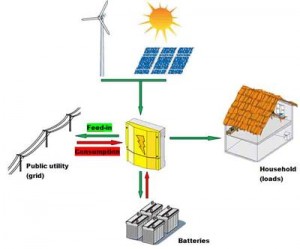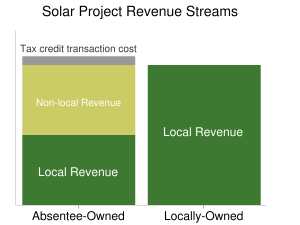 The world’s most effective clean energy policy – the feed-in tariff – isn’t a government program, but rather reshapes the electricity market to favor renewable energy production. And it increases competition, as well.
The world’s most effective clean energy policy – the feed-in tariff – isn’t a government program, but rather reshapes the electricity market to favor renewable energy production. And it increases competition, as well.
An even more appealing outcome of this innovative program is that it has decentralized Germany’s energy market. Whereas four major utilities used to control all of the electricity production in the country, the guaranteed access to the grid and the fixed credit have opened up the electricity market, rapidly decentralizing the country’s energy oligarchy. The shift has been so dramatic that utilities only account for a tenth of the entire renewable electricity market in the country. Instead, it is small businesses, families and farmers that are responsible for producing the vast majority of the clean energy used in the country. This has ensured that the economic benefits of clean energy have been broadly distributed – helping to ensure that more Germans will benefit from the boon and creating even greater support for the industry. [emphasis mine]
Decentralizing renewable energy production means more widely shared economic benefits and more political support for renewable energy.



